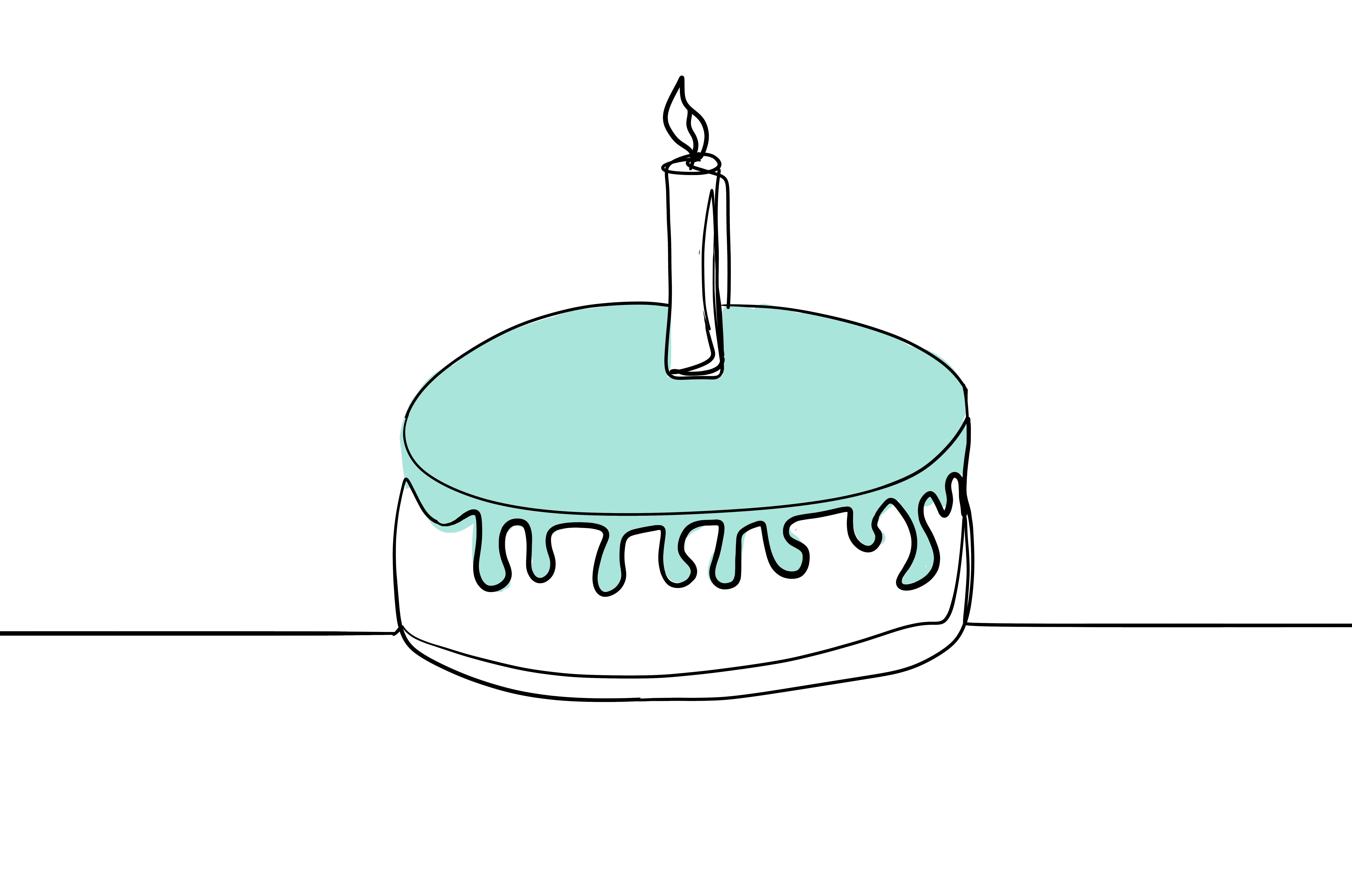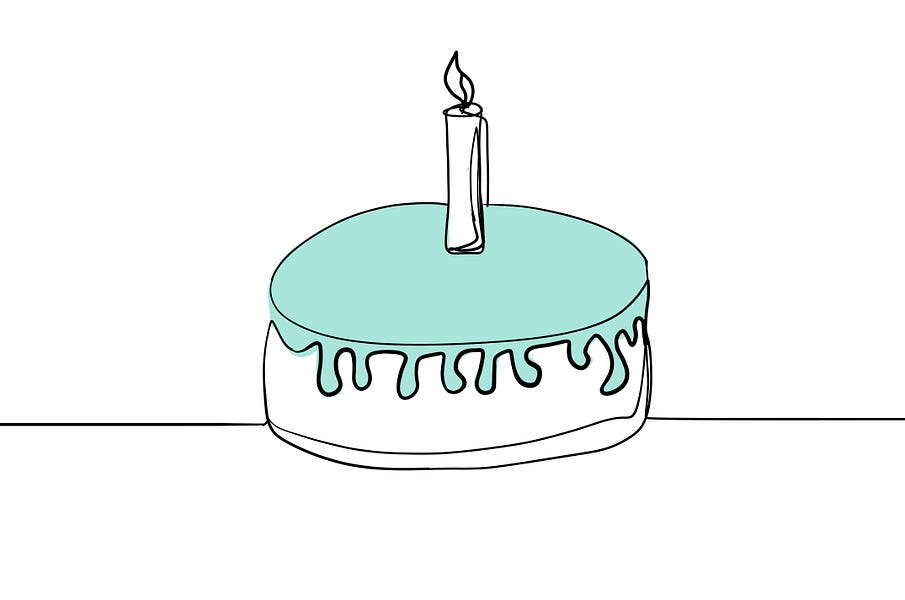
I’ll admit, I’m not great with anniversaries. One year we were visiting friends in Atlanta on the tail end of our summer vacation. As we were walking through downtown doing the tourist thing, they randomly asked when our wedding anniversary was. My husband remembered a split second before me and started laughing as I sputtered, “Um … it’s today.”
But I am confident that years from now, I will look back on this past week as an important milestone. The Dispatch turned one, and—I’m not going to lie—we’re pretty excited about how far we’ve come. In the “manifesto” we sent out on October 8, 2019, we wrote: “Right now, we are a small and merry band, boarding a pirate skiff with limited provisions amid choppy waters crammed with well-equipped battleships, barreling through the smoking wrecks of larger vessels that came before us.”
The past couple of decades have wreaked havoc on the media business. The internet changed things in ways no one could have foreseen when we were accessing it via a dial-up modem and using AOL discs as drink coasters. Some changes were good. It was remarkably equalizing—remember the blogosphere?—in that it lowered the “cost of entry.” Register a domain, find yourself a publishing tool, and you’re on your way. Best of all, the ink is free and you never run out of space. But print publications early on disregarded the value of online advertising and all but gave it away. And they gave away their online content, setting up an expectation that, if it’s on the internet, it should be free. There were many other miscalculations along the way, but this is supposed to be a celebratory musing.
As much as I’m in denial about how close I am to AARP membership … I’ve been around long enough to have seen all the ways online publications responded to the various pressures: Home pages that refreshed automatically to increase page views. Articles that were “paginated”—forcing readers to click three or four times to read an article that went on longer than 1,000 words (news flash: No one got to the end). Emphasis on “volume” publishing: publishing 30 or 40 or 60 pieces a day, just throwing everything at the wall to see what might stick. Along the way, editors had to learn to deal with search engines and then social media.
If you’re a regular reader, you’ve already heard our spiel. We’re doing something different, zagging while everyone zigs, yadda yadda. You don’t need to hear it again. But you should know that we still very much feel like the merry band of pirates on our light and swift skiff. Okay, sometimes we’re very tired pirates. We anticipated that there would be an impeachment. We knew it would be a fraught election year. But we didn’t include any tarot card readers on the crew, so we didn’t predict a pandemic. Or the most significant protests on race and civil rights in decades. Or a Supreme Court nomination fight a month before the election.
But we’ve risen to the challenge. To cover the pandemic, we’ve talked to epidemiologists and published pieces by physicians. We’ve consulted economists about lockdowns and education experts on opening schools. We’ve had law professors explain the charges against the police in George Floyd’s death. We’ve relied on our own constitutional lawyer, David French, to discuss the problems with policing in America and other topics related to criminal justice and civil rights.
One of the most rewarding aspects of this crazy journey is the community we’ve built. It’s cliché to say we couldn’t have done it without you, our readers. But it’s true. And it’s made the hard work worthwhile. We are proud and grateful that the comments that appear at the bottom of our articles and newsletters feature such a high level of discourse. We appreciate when you share your own personal stories, and when you listen to ours. We get pretty jazzed when we see how many people join our Dispatch Live virtual events, even if you’re just tuning in for a photo bomb by Jonah’s dogs or to marvel at Steve’s bottomless glass of Spanish wine.
As we look to the year ahead, we’re going to keep our pirate mentality. We anticipate adding some new members to the crew, and we might need to make the skiff a little bigger. But we’ll remain nimble and look forward to the journey. Thanks for taking it with us.
Now, here’s some good stuff you might have missed:
We hear so often from Trump supporters that they tolerate his scandals, his tweets, and his generally bombastic ways, “because he fights.” This is a sentiment popular among the pro-life community. In his Thursday French Press (🔐), David exposes the flaws in this line of thought, and points out the difference between being anti-abortion and pro-life. It’s impossible, he says, to view Donald Trump as “pro-life” given his dismissive attitude toward the pandemic. And when pro-lifers hold him up as a champion, they are doing damage to their cause: “[H]ow does the rest of America experience this pro-life Christian’s political activism? The partisan pro-life Christian thinks they’re saying, ‘Life, life, life.’ The world hears ‘Trump, Trump, Trump,” he writes.
We hear it all the time: Income inequality is rampant. Wages are stagnating. The middle class is shrinking. The last one of those might be true, but not for the reasons you think. In this week’s Capitolism (🔐), Scott Lincicome explains that things aren’t as bad as we’ve been told. He highlights the statistical measures that aren’t quite right, like looking at trends among groups rather than what’s happening to individuals within those groups, or emphasizing “household” income when the marriage rate has gone down. As for the middle class? Yeah, it’s shrinking. But some of those people are “disappearing” into higher income brackets.
Let’s face it. The thing we’ll remember most about the vice presidential debate was the fly that sat on Mike Pence’s head for two minutes. But Abby McCloskey was paying attention, particularly to Kamala Harris’ claim that Joe Biden’s tax plan would raise taxes only on the wealthy. McCloskey points out that the campaign’s promise to repeal the Trump tax cuts would raise taxes on most Americans, and Biden’s plan would reduce household incomes indirectly. And now is not the time. But she also has some words for the Trump administration, noting that many people have been left behind in the economic recovery. “Then and now, Republicans must look beyond raw economic growth to build an economy that is inclusive, dynamic, and sustainable.”
And here’s the best of the rest:
-
The economic impact of the lockdowns has not been felt equally. New statistics show that a disproportionate number of women are leaving the workforce. Dan Lips writes about how it’s important to get schools back open, and offers other remedies.
-
Jonah has a warning about October. He predicts it’s going to look a lot like that famous haunted bedroom scene from Poltergeist. “An unplugged lamp flies through the air, docks with a lampshade, and turns on (which would be kinda porny on a planet inhabited by sentient table lamps). A toy Hulk is riding a flying toy horse.” It makes sense if you read the whole thing.
-
Speaking of anniversaries … it’s been 19 years since the U.S. invaded Afghanistan. In Vital Interests (🔐), Tom Joscelyn looks back at the mistakes that hampered Operation Enduring Freedom.
-
When this summer’s protests led to calls to “defund the police,” many people on the right said, “Whoa, that’s a little extreme. How about some common sense criminal justice reforms?” Well, as it so happens, California just passed some. Brad Polumbo has the details.
-
On the pods: The Supreme Court is back, and Advisory Opinions is on the case, weighing in on the court’s refusal to hear a challenge to the Obergefell decision that legalized gay marriage. On The Remnant, Jonah talks marijuana politics with Jonathan Adler (no Doritos were harmed during the production of this episode). And on the Dispatch Podcast, the gang talks about Biden’s lead in the polls and whether we could be looking at a landslide.







Please note that we at The Dispatch hold ourselves, our work, and our commenters to a higher standard than other places on the internet. We welcome comments that foster genuine debate or discussion—including comments critical of us or our work—but responses that include ad hominem attacks on fellow Dispatch members or are intended to stoke fear and anger may be moderated.
With your membership, you only have the ability to comment on The Morning Dispatch articles. Consider upgrading to join the conversation everywhere.